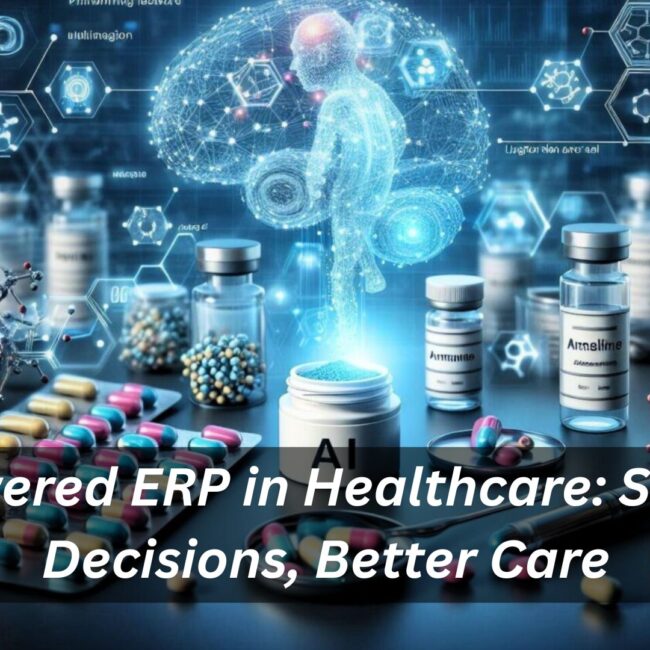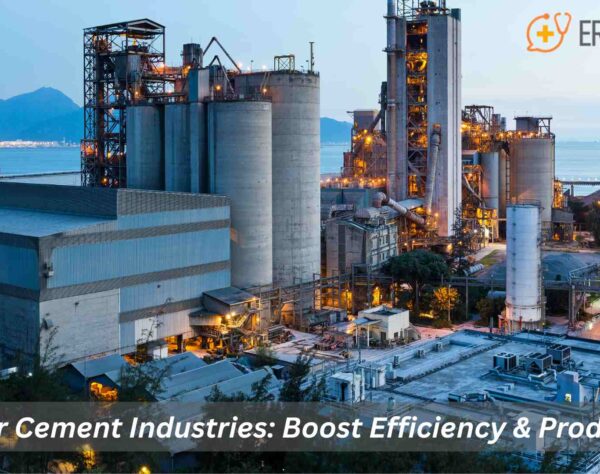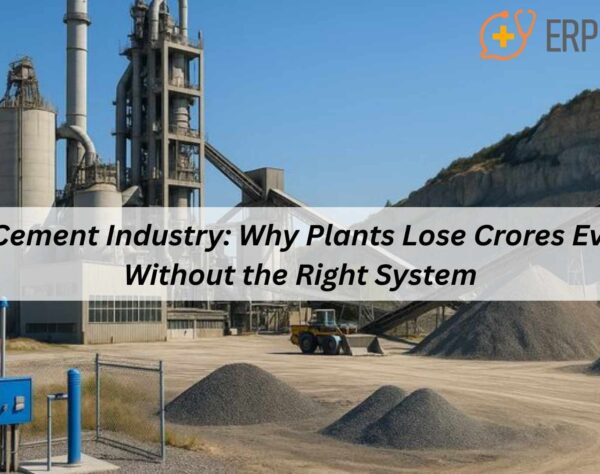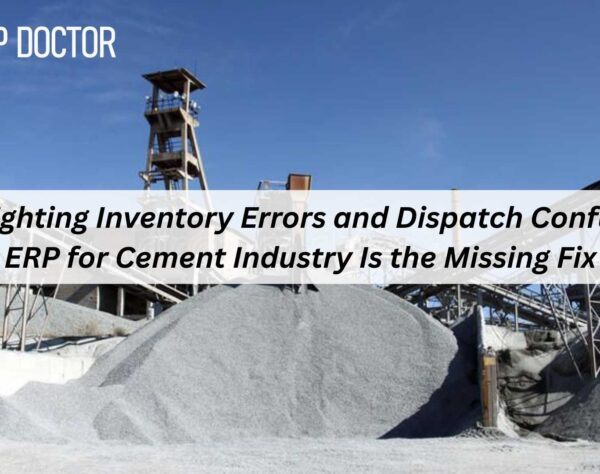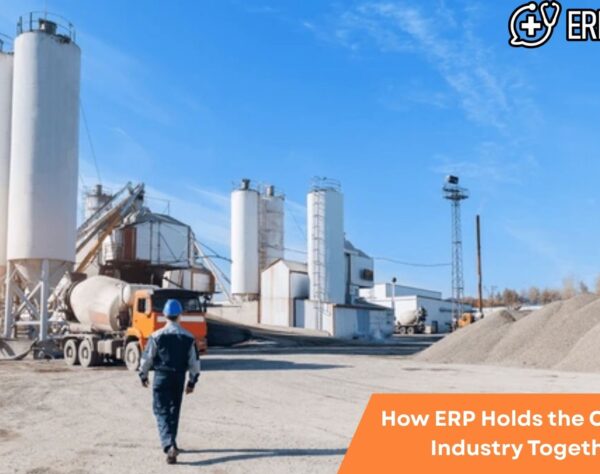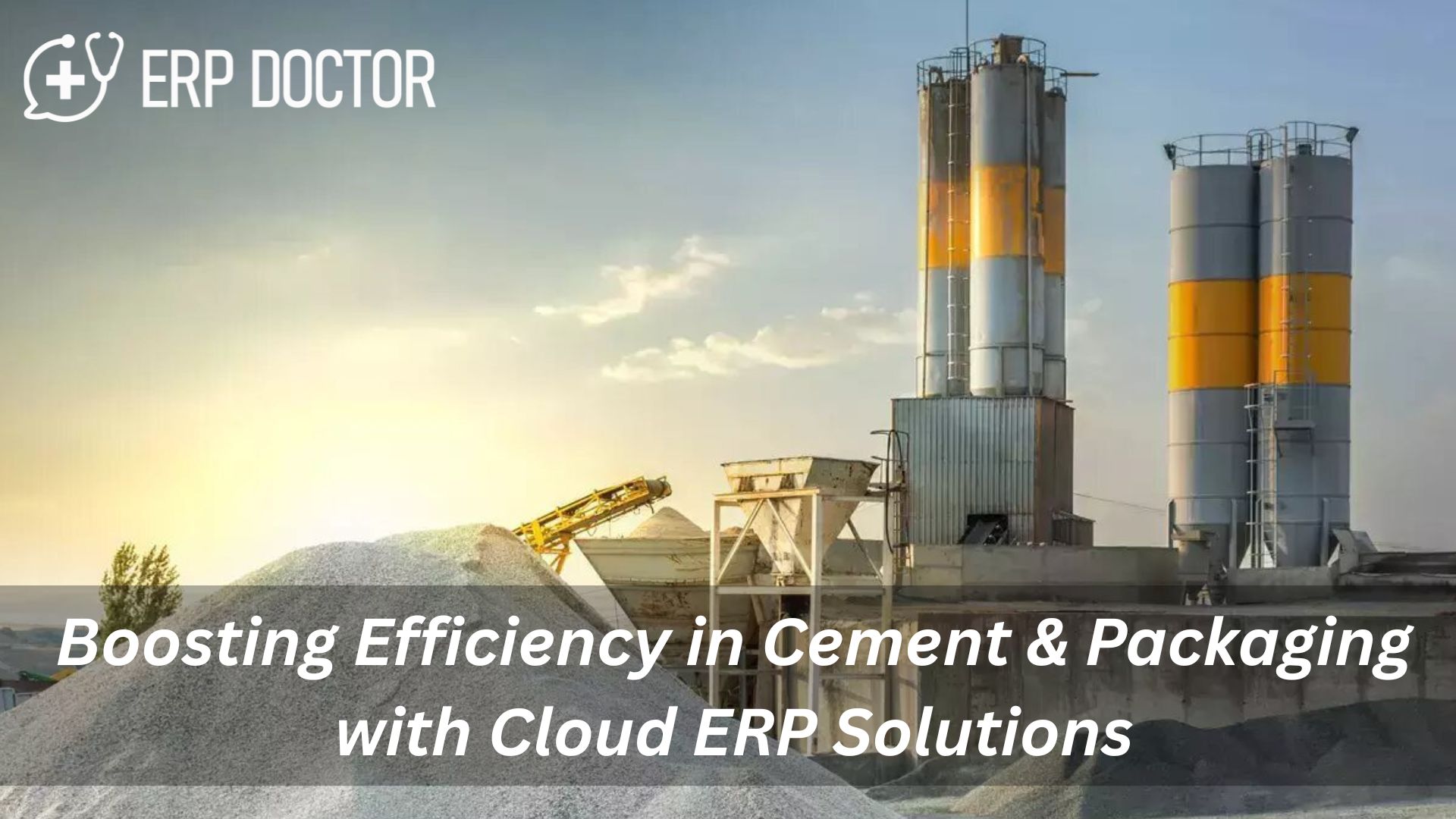
Boosting Efficiency in Cement & Packaging with Cloud ERP Solutions
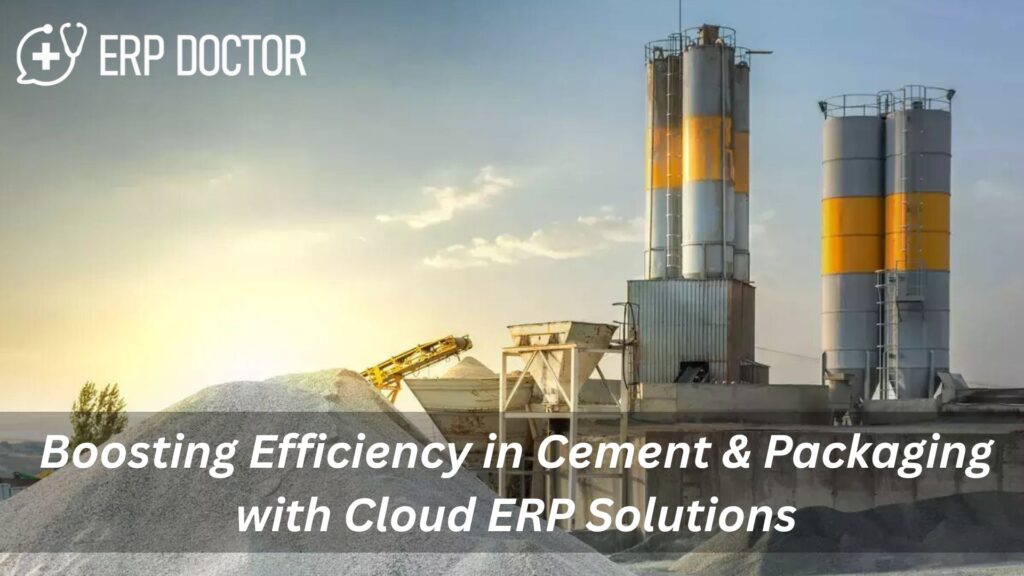
Maximize Operational Efficiency in Cement & Packaging via Cloud ERP
Why Cement & Packaging Industries Need Digital Acceleration
The cement and packaging sectors form the backbone of industrial and consumer supply chains. Yet, both industries face volatile demand, rising raw material costs, strict compliance norms, and fragmented operations. Traditional ERP systems or Excel-based management fall short in providing the agility these sectors demand. This is where Cloud ERP Solutions step in—offering real-time visibility, cost control, and process automation tailored to cement manufacturing and packaging operations.
Key Challenges in Cement & Packaging Operations
1. Complex Supply Chain Management
From sourcing limestone and fly ash to managing multi-layer packaging materials, supply chain complexity causes frequent delays and inefficiencies.
2. Demand Volatility
Cement demand fluctuates with infrastructure projects, while packaging faces seasonal surges in FMCG, e-commerce, and agriculture.
3. Compliance & Quality Standards
Environmental regulations in cement (dust emission, waste management) and safety norms in packaging require strict monitoring.
4. Cost & Waste Management
Inefficient resource allocation leads to high production costs and raw material wastage.
How Cloud ERP Solutions Drive Efficiency
1. Real-Time Visibility Across Plants & Warehouses
Cloud ERP integrates production plants, packaging units, and distribution centers into a single dashboard. Managers can track inventory, shipments, and raw material usage in real time.
2. Predictive Demand Forecasting with AI
AI-enabled modules in Cloud ERP predict cement consumption in construction projects and packaging demand spikes during festive or harvest seasons.
3. Smarter Production Planning
Automated scheduling ensures optimal utilization of kilns, packaging lines, and labor resources. Downtime reduces, while output consistency improves.
4. Integrated Quality & Compliance Management
Cloud ERP automates regulatory documentation, ensuring compliance with ISO, BIS, and environmental norms, reducing the risk of penalties.
5. Cost & Waste Reduction
By enabling real-time monitoring of energy, fuel, and material usage, Cloud ERP helps reduce wastage, optimize procurement, and cut operational costs.
Cloud ERP in Action: Cement vs. Packaging Use Cases
- Cement Industry:
- Tracks clinker production efficiency
- Manages distribution to multiple dealers across regions
- Predicts maintenance needs of heavy equipment
- Packaging Industry:
- Optimizes multi-layer material procurement
- Enhances traceability of packaged goods
- Automates invoicing & GST compliance
Business Benefits You Can Expect
- 20–30% improvement in resource utilization
- 15% reduction in operational costs through waste minimization
- Faster decision-making with real-time analytics
- Scalable operations for multi-location plants and packaging lines
Why Cloud ERP Over Traditional ERP?
Unlike on-premises systems, Cloud ERP offers scalability, mobility, and lower upfront costs. With anytime-anywhere access, managers and executives gain decision-making power on the go—ideal for industries spread across regions like cement and packaging.
A Smarter, Faster Future
The cement and packaging industries are entering an era where efficiency is non-negotiable. Cloud ERP solutions empower businesses to stay compliant, cut costs, and scale effortlessly. In an industry where margins are tight and demand shifts quickly, ERP in the cloud is not just a technology upgrade—it’s a survival strategy.
FAQs
1. What is the biggest advantage of Cloud ERP for cement manufacturers?
It offers real-time production and inventory tracking, helping manage fluctuating demand and raw material costs.
2. How does Cloud ERP help packaging companies?
It streamlines procurement, automates compliance, and improves delivery timelines for large-scale packaging operations.
3. Is Cloud ERP scalable for small and mid-sized cement or packaging companies?
Yes, Cloud ERP is modular and can scale up as the business expands across regions or product lines.
4. Can Cloud ERP reduce costs in cement and packaging?
Absolutely. Through optimized procurement, energy monitoring, and waste reduction, businesses can cut costs significantly.
5. Which industries besides cement and packaging benefit from Cloud ERP?
Steel, chemicals, FMCG, pharmaceuticals, and logistics sectors also see major efficiency gains.
6. How does Cloud ERP improve compliance management in cement and packaging?
Cloud ERP automatically generates compliance reports, monitors safety standards, and ensures adherence to environmental and tax regulations, reducing the risk of fines.
7. Can Cloud ERP integrate with existing business software?
Yes, modern Cloud ERP solutions can integrate seamlessly with CRM, supply chain software, financial tools, and third-party applications to create a unified digital ecosystem.
8. Does Cloud ERP provide mobile accessibility?
Yes, Cloud ERP is designed for anytime-anywhere access. Plant managers, distributors, and executives can track operations and make decisions on mobile devices in real time.
9. How fast is the implementation of Cloud ERP for cement and packaging companies?
Compared to traditional ERP, Cloud ERP has shorter deployment cycles. Depending on the company’s size, it can be fully implemented within weeks to a few months.
10. What is the ROI of implementing Cloud ERP in cement & packaging industries?
Businesses often see faster ROI through reduced downtime, improved forecasting accuracy, better compliance, and operational cost savings within the first 12–18 months.
Talk to our experts today and discover how Cloud ERP can revolutionize efficiency in your cement and packaging operations.


